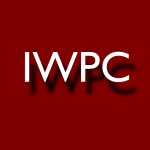165 papers:
 CASE-2015-FarhanPWL #algorithm #machine learning #predict #using
CASE-2015-FarhanPWL #algorithm #machine learning #predict #using- Predicting individual thermal comfort using machine learning algorithms (AAF, KRP, BW, PBL), pp. 708–713.
 VLDB-2015-AmsterdamerKM #interface #natural language #query
VLDB-2015-AmsterdamerKM #interface #natural language #query- A Natural Language Interface for Querying General and Individual Knowledge (YA, AK, TM), pp. 1430–1441.
 CHI-2015-EntwistleRVBA #framework #human-computer #research
CHI-2015-EntwistleRVBA #framework #human-computer #research- Beyond the Individual: The Contextual Wheel of Practice as a Research Framework for Sustainable HCI (JME, MKR, NV, RSB, MSA), pp. 1125–1134.
 CHI-2015-HongGAA #crowdsourcing
CHI-2015-HongGAA #crowdsourcing- In-group Questions and Out-group Answers: Crowdsourcing Daily Living Advice for Individuals with Autism (HH, EG, GDA, RIA), pp. 777–786.
 CHI-2015-LesselAK #analysis #people
CHI-2015-LesselAK #analysis #people- Analysis of Recycling Capabilities of Individuals and Crowds to Encourage and Educate People to Separate Their Garbage Playfully (PL, MA, AK), pp. 1095–1104.
 CHI-2015-PaayKSLR #comprehension #difference
CHI-2015-PaayKSLR #comprehension #difference- Understanding Individual Differences for Tailored Smoking Cessation Apps (JP, JK, MBS, LL, SR), pp. 1699–1708.
 CSCW-2015-ParkC #challenge #recognition #social
CSCW-2015-ParkC #challenge #recognition #social- Individual and Social Recognition: Challenges and Opportunities in Migraine Management (SYP, YC), pp. 1540–1551.
 HCI-IT-2015-KhataeiA #persuasion #trust
HCI-IT-2015-KhataeiA #persuasion #trust- Trust-Based Individualization for Persuasive Presentation Builder (AK, AA), pp. 418–428.
 HIMI-IKC-2015-KatoHT
HIMI-IKC-2015-KatoHT- Innovation Compass: Integrated System to Support Creativity in Both Individuals and Groups (YK, TH, ST), pp. 476–487.
 LCT-2015-OnoOIY #case study #communication
LCT-2015-OnoOIY #case study #communication- Voice-Based Computer Mediated Communication for Individual Practice to Increase Speaking Proficiency: Construction and Pilot Study (YO, AO, MI, MY), pp. 115–123.
 KDD-2015-KotziasDFS #using
KDD-2015-KotziasDFS #using- From Group to Individual Labels Using Deep Features (DK, MD, NdF, PS), pp. 597–606.
 QAPL-2015-BortolussiH #markov #modelling #performance
QAPL-2015-BortolussiH #markov #modelling #performance- Efficient Checking of Individual Rewards Properties in Markov Population Models (LB, JH), pp. 32–47.
 CHI-2014-CranshawLKS #social
CHI-2014-CranshawLKS #social- Curated city: capturing individual city guides through social curation (JC, KL, PGK, NMS), pp. 3249–3258.
 CHI-2014-ZhangH #comprehension #modelling #multi
CHI-2014-ZhangH #comprehension #modelling #multi- Understanding multitasking through parallelized strategy exploration and individualized cognitive modeling (YZ, AJH), pp. 3885–3894.
 CSCW-2014-BrownELQM #how #interactive
CSCW-2014-BrownELQM #how #interactive- Tracking serendipitous interactions: how individual cultures shape the office (CB, CE, IL, DQ, CM), pp. 1072–1081.
 CSCW-2014-ChenHMN #comprehension #social #social media #word
CSCW-2014-ChenHMN #comprehension #social #social media #word- Understanding individuals’ personal values from social media word use (JC, GH, JM, JN), pp. 405–414.
 DUXU-DP-2014-YantacOC #case study #design #education #interactive
DUXU-DP-2014-YantacOC #case study #design #education #interactive- A Challenging Design Case Study for Interactive Media Design Education: Interactive Media for Individuals with Autism (AEY, SEO, AÜÇ), pp. 185–196.
 HCI-AS-2014-KellerPBS #adaptation #mobile #semantics
HCI-AS-2014-KellerPBS #adaptation #mobile #semantics- An Adaptive Semantic Mobile Application for Individual Touristic Exploration (CK, RP, SB, TS), pp. 434–443.
 HIMI-DE-2014-MatsunagaY #documentation #network
HIMI-DE-2014-MatsunagaY #documentation #network- Digital Document Network System for Organizing Individual Knowledge (KM, KY), pp. 396–403.
 LCT-TRE-2014-AlmazovaK #approach #student
LCT-TRE-2014-AlmazovaK #approach #student- Computer Assisted Individual Approach to Acquiring Foreign Vocabulary of Students Major (NA, MK), pp. 248–257.
 LCT-TRE-2014-GoodeC #collaboration #online #performance #predict
LCT-TRE-2014-GoodeC #collaboration #online #performance #predict- Online Collaboration: Individual Involvement Used to Predict Team Performance (AWG, GC), pp. 408–416.
 KMIS-2014-Schmitt #approach #generative #information management #novel
KMIS-2014-Schmitt #approach #generative #information management #novel- Proposing a Next Generation of Knowledge Management Systems for Creative Collaborations in Support of Individuals and Institutions — Featuring a Novel Approach for Meme-based Personal Knowledge Management (US), pp. 346–353.
 SAC-2014-PedrosaP #using
SAC-2014-PedrosaP #using- Text entry using a foot for severely motor-impaired individuals (DdCP, MdGCP), pp. 957–963.
 CASE-2013-JunKZRK #automation
CASE-2013-JunKZRK #automation- Automation for individualization of Kinect-based quantitative progressive exercise regimen (SkJ, SK, XZ, DKR, VNK), pp. 243–248.
 CSEET-2013-MeadS #assurance #roadmap
CSEET-2013-MeadS #assurance #roadmap- The software assurance competency model: A roadmap to enhance individual professional capability (NRM, DS), pp. 119–128.
 CSEET-2013-RochaS #collaboration #comprehension #student
CSEET-2013-RochaS #collaboration #comprehension #student- Understanding individual contribution and collaboration in student software teams (FR, ES), pp. 51–60.
 SFM-2013-BortolussiH #approximate #behaviour #markov #modelling
SFM-2013-BortolussiH #approximate #behaviour #markov #modelling- Checking Individual Agent Behaviours in Markov Population Models by Fluid Approximation (LB, JH), pp. 113–149.
 CHI-2013-HongYKAA #independence #network #social
CHI-2013-HongYKAA #independence #network #social- Investigating the use of circles in social networks to support independence of individuals with autism (HH, SY, JGK, GDA, RIA), pp. 3207–3216.
 CHI-2013-SaliviaH #named
CHI-2013-SaliviaH #named- PointAssist: assisting individuals with motor impairments (GS, JPH), pp. 1213–1222.
 CHI-2013-SchmidtSG #multi
CHI-2013-SchmidtSG #multi- Personal clipboards for individual copy-and-paste on shared multi-user surfaces (DS, CS, HG), pp. 3335–3344.
 CHI-2013-TockerCSC #eye tracking #visualisation
CHI-2013-TockerCSC #eye tracking #visualisation- Individual user characteristics and information visualization: connecting the dots through eye tracking (DT, CC, BS, GC), pp. 295–304.
 CHI-2013-YinOPZ #adaptation #approach
CHI-2013-YinOPZ #adaptation #approach- Making touchscreen keyboards adaptive to keys, hand postures, and individuals: a hierarchical spatial backoff model approach (YY, TO, KP, SZ), pp. 2775–2784.
 DHM-HB-2013-KorteKSOZVH
DHM-HB-2013-KorteKSOZVH- Evaluating Comfort Levels of a Workstation with an Individually Controlled Heating and Lighting System (EMdK, LKE, MES, LHvO, BvdZ, GV, GH), pp. 213–222.
 DUXU-PMT-2013-BellowsHY #approach #design #difference #research
DUXU-PMT-2013-BellowsHY #approach #design #difference #research- An Individual Differences Approach to Design Fixation: Comparing Laboratory and Field Research (BGB, JFH, RJY), pp. 13–21.
 DUXU-PMT-2013-ThomasJ #sorting
DUXU-PMT-2013-ThomasJ #sorting- Merging Methodologies: Combining Individual and Group Card Sorting (RLT, IJ), pp. 417–426.
 DUXU-WM-2013-Gould #network
DUXU-WM-2013-Gould #network- Dot, Line, Network: Helping Individuals Make Sense of “New Data” (EWG), pp. 496–505.
 DUXU-WM-2013-LinL #design
DUXU-WM-2013-LinL #design- Management of Individual and Organizational Design Knowledge (TYL, DBL), pp. 47–56.
 DUXU-WM-2013-MemonT #case study #experience #locality
DUXU-WM-2013-MemonT #case study #experience #locality- Sharing Life Experiences with Friends Based on Individual’s Locality (MAM, JT), pp. 706–713.
 HCI-III-2013-ShenCJ #design #energy #evaluation #interface
HCI-III-2013-ShenCJ #design #energy #evaluation #interface- Design and Evaluation of Eco-feedback Interfaces to Support Location-Based Services for Individual Energy Awareness and Conservation (YTS, PCC, TJ), pp. 132–140.
 HIMI-HSM-2013-HondaON #estimation
HIMI-HSM-2013-HondaON #estimation- Estimation of the Facial Impression from Individual Facial Features for Constructing the Makeup Support System (AH, CO, KN), pp. 92–99.
 KDIR-KMIS-2013-Eardley #information management #learning
KDIR-KMIS-2013-Eardley #information management #learning- Negotiated Work-based Learning and Organisational Learning — The Relationship between Individual and Organisational Knowledge Management (AE), pp. 1–5.
 SAC-2013-TangHHC #mobile #named
SAC-2013-TangHHC #mobile #named- iLauncher: an intelligent launcher for mobile apps based on individual usage patterns (LYT, PCH, JLH, MSC), pp. 505–512.
 CASE-2012-LiuS #injection #modelling #validation
CASE-2012-LiuS #injection #modelling #validation- Modeling and experimental validation of air-fuel ratio under individual cylinder fuel injection for port-injection engines (YL, TS), pp. 256–260.
 DRR-2012-TangSS #distance #using
DRR-2012-TangSS #distance #using- Handwriting individualization using distance and rarity (YT, SNS, HS).
 STOC-2012-CebrianCVV #contract #robust
STOC-2012-CebrianCVV #contract #robust- Finding red balloons with split contracts: robustness to individuals’ selfishness (MC, LC, AV, PV), pp. 775–788.
 CHI-2012-JudgeMW #collaboration #design #evaluation
CHI-2012-JudgeMW #collaboration #design #evaluation- Comparing collaboration and individual personas for the design and evaluation of collaboration software (TKJ, TM, SW), pp. 1997–2000.
 CSCW-2012-EhrlichC #analysis #communication #development #distributed #multi #performance
CSCW-2012-EhrlichC #analysis #communication #development #distributed #multi #performance- All-for-one and one-for-all?: a multi-level analysis of communication patterns and individual performance in geographically distributed software development (KE, MC), pp. 945–954.
 CSCW-2012-HuhA #collaboration #problem
CSCW-2012-HuhA #collaboration #problem- Collaborative help in chronic disease management: supporting individualized problems (JH, MSA), pp. 853–862.
 CAiSE-2012-Petrusel #modelling #process
CAiSE-2012-Petrusel #modelling #process- Aggregating Individual Models of Decision-Making Processes (RP), pp. 47–63.
 ICPR-2012-HaoK #people #retrieval
ICPR-2012-HaoK #people #retrieval- Unsupervised people organization and its application on individual retrieval from videos (PH, SiK), pp. 2001–2004.
 KDIR-2012-QuirogaMH #sequence
KDIR-2012-QuirogaMH #sequence- Frequent and Significant Episodes in Sequences of Events — Computation of a New Frequency Measure based on Individual Occurrences of the Events (OQ, JM, SH), pp. 324–328.
 HT-2011-PapagelisMZ #behaviour #online #social
HT-2011-PapagelisMZ #behaviour #online #social- Individual behavior and social influence in online social systems (MP, VM, RvZ), pp. 241–250.
 CSEET-2011-HaleJG #performance #predict #student
CSEET-2011-HaleJG #performance #predict #student- Predicting individual performance in student project teams (MLH, NJ, RFG), pp. 11–20.
 CHI-2011-HuhNA #collaboration
CHI-2011-HuhNA #collaboration- Supporting collaborative help for individualized use (JH, MWN, MSA), pp. 3141–3150.
 DUXU-v2-2011-SatoTO #case study #experience
DUXU-v2-2011-SatoTO #case study #experience- Experience-Based Curiosity Model: Curiosity Extracting Model Regarding Individual Experiences of Urban Spaces (CS, ST, NO), pp. 635–644.
 HCI-DDA-2011-KallinenER #difference #multi
HCI-DDA-2011-KallinenER #difference #multi- Individual Differences in Work Load While Doing Multitasking with a Computer (KK, IE, NR), pp. 351–358.
 HCI-UA-2011-AbrahamJ #comprehension #perspective #why
HCI-UA-2011-AbrahamJ #comprehension #perspective #why- An Enriched Understanding of Why the Environment and Individual Characteristics Are Important in Understanding Technology Utilization in Healthcare: An Evolutionary Psychology Perspective (CA, IAJ), pp. 141–150.
 ITiCSE-2010-BenayaHSZ #education
ITiCSE-2010-BenayaHSZ #education- Individual and group seminars and workshops in the computer science curriculum (TB, MH, DS, EZ), pp. 53–57.
 CHI-2010-FlatlaG #difference #modelling #visualisation
CHI-2010-FlatlaG #difference #modelling #visualisation- Individual models of color differentiation to improve interpretability of information visualization (DRF, CG), pp. 2563–2572.
 CHI-2010-ForlizziBS #collaboration #design #interactive #navigation
CHI-2010-ForlizziBS #collaboration #design #interactive #navigation- Where should i turn: moving from individual to collaborative navigation strategies to inform the interaction design of future navigation systems (JF, WCB, TS), pp. 1261–1270.
 CHI-2010-KangFK #social
CHI-2010-KangFK #social- Exploiting knowledge-in-the-head and knowledge-in-the-social-web: effects of domain expertise on exploratory search in individual and social search environments (RK, WTF, TGK), pp. 393–402.
 CHI-2010-LiaoPZM #community #online
CHI-2010-LiaoPZM #community #online- Chinese online communities: balancing management control and individual autonomy (QL, YP, MXZ, FM), pp. 2193–2202.
 CSCW-2010-VoidaCG #game studies
CSCW-2010-VoidaCG #game studies- The individual and the group in console gaming (AV, MSTC, SG), pp. 371–380.
 ICEIS-HCI-2010-WuLFW #perspective
ICEIS-HCI-2010-WuLFW #perspective- The Acceptance of Wireless Healthcare for Individuals — An Integrative View (ILW, JYL, CYF, SMW), pp. 124–130.
 KDD-2010-LuWZB
KDD-2010-LuWZB- Ensemble pruning via individual contribution ordering (ZL, XW, XZ, JB), pp. 871–880.
 SEKE-2010-SrinivasaraghavanMC #performance #re-engineering
SEKE-2010-SrinivasaraghavanMC #performance #re-engineering- Smarter Software Engineering: Knowledge factors contributing to improved Individual Performance (NS, CM, JAC), pp. 309–314.
 HT-2009-MeissDGRM #behaviour #web #what
HT-2009-MeissDGRM #behaviour #web #what- What’s in a session: tracking individual behavior on the web (MM, JD, BG, JJR, FM), pp. 173–182.
 HT-2009-Santos-NetoCAIR #behaviour #social
HT-2009-Santos-NetoCAIR #behaviour #social- Individual and social behavior in tagging systems (ESN, DC, NA, AI, MR), pp. 183–192.
 CSEET-2009-KrogstieD #experience #re-engineering #student #timeline
CSEET-2009-KrogstieD #experience #re-engineering #student #timeline- Shared Timeline and Individual Experience: Supporting Retrospective Reflection in Student Software Engineering Teams (BRK, MD), pp. 85–92.
 HCD-2009-AdnanND #approach #difference
HCD-2009-AdnanND #approach #difference- Examining Individual Differences Effects: An Experimental Approach (WAWA, NLMN, NGND), pp. 570–575.
 HCI-NIMT-2009-Allison #adaptation #generative #human-computer #interface
HCI-NIMT-2009-Allison #adaptation #generative #human-computer #interface- The I of BCIs: Next Generation Interfaces for Brain-Computer Interface Systems That Adapt to Individual Users (BZA), pp. 558–568.
 HCI-VAD-2009-LiHLW #difference
HCI-VAD-2009-LiHLW #difference- The Differences of Aviation Human Factors between Individualism and Collectivism Culture (WCL, DH, LWL, TW), pp. 723–730.
 HIMI-DIE-2009-NobutaniN
HIMI-DIE-2009-NobutaniN- Control of Personal Tempo to Support Individual Action and Cognition (NN, YN), pp. 702–708.
 IDGD-2009-ZhongLL #learning #similarity
IDGD-2009-ZhongLL #learning #similarity- Exploring the Influences of Individualism-Collectivism on Individual’s Perceived Participation Equality in Virtual Learning Teams (YZ, NL, JL), pp. 207–216.
 ICEIS-J-2009-SpahnW #analysis #development #information management #problem
ICEIS-J-2009-SpahnW #analysis #development #information management #problem- End-User Development for Individualized Information Management: Analysis of Problem Domains and Solution Approaches (MS, VW), pp. 843–857.
 KDD-2009-MalmgrenHAW #communication
KDD-2009-MalmgrenHAW #communication- Characterizing individual communication patterns (RDM, JMH, LANA, DJW), pp. 607–616.
 SIGIR-2009-CormackCB #learning #rank
SIGIR-2009-CormackCB #learning #rank- Reciprocal rank fusion outperforms condorcet and individual rank learning methods (GVC, CLAC, SB), pp. 758–759.
 CASE-2008-NugentHHFS #impact analysis #reliability
CASE-2008-NugentHHFS #impact analysis #reliability- Assessing the impact of individual sensor reliability within smart living environments (CDN, XH, JH, DDF, KS), pp. 685–690.
 ITiCSE-2008-Burrell #learning #object-oriented #process #programming #source code #visualisation
ITiCSE-2008-Burrell #learning #object-oriented #process #programming #source code #visualisation- Learning object oriented programming: unique visualizations of individuals learning styles, activities and the programs produced (CJB), p. 339.
 CSCW-2008-PiperH
CSCW-2008-PiperH- Supporting medical conversations between deaf and hearing individuals with tabletop displays (AMP, JDH), pp. 147–156.
 CSCW-2008-TabardME #collaboration #evolution #hybrid
CSCW-2008-TabardME #collaboration #evolution #hybrid- From individual to collaborative: the evolution of prism, a hybrid laboratory notebook (AT, WEM, EE), pp. 569–578.
 ICEIS-ISAS2-2008-BoukhedoumaA #modelling #process #workflow
ICEIS-ISAS2-2008-BoukhedoumaA #modelling #process #workflow- Modelling and Distributing Individual and Collective Activities in a Workflow System (SB, ZA), pp. 290–297.
 CIKM-2008-DavisCBCB #predict
CIKM-2008-DavisCBCB #predict- Predicting individual disease risk based on medical history (DAD, NVC, NB, NAC, ALB), pp. 769–778.
 ICPR-2008-SuS #generative #modelling #using
ICPR-2008-SuS #generative #modelling #using- Generative models for fingerprint individuality using ridge models (CS, SNS), pp. 1–4.
 IJCAR-2008-MotikH #logic #reasoning #reuse
IJCAR-2008-MotikH #logic #reasoning #reuse- Individual Reuse in Description Logic Reasoning (BM, IH), pp. 242–258.
 LICS-2008-Lynch #logic #modelling
LICS-2008-Lynch #logic #modelling- A Logical Characterization of Individual-Based Models (JFL), pp. 379–390.
 SIGMOD-2007-NergizAC #database
SIGMOD-2007-NergizAC #database- Hiding the presence of individuals from shared databases (MEN, MA, CC), pp. 665–676.
 DHM-2007-OlivatoMFR #design
DHM-2007-OlivatoMFR #design- Foot Digitalization for Last Design and Individual Awareness of Personal Foot Characteristics (PO, MM, EF, AR), pp. 949–958.
 DHM-2007-VolzBHK #automation #generative #linear #metric #using
DHM-2007-VolzBHK #automation #generative #linear #metric #using- Automatic, Body Measurements Based Generation of Individual Avatars Using Highly Adjustable Linear Transformation (AV, RB, SH, KK), pp. 453–459.
 HCI-IDU-2007-HwangS #detection #problem #usability #what
HCI-IDU-2007-HwangS #detection #problem #usability #what- What Makes Evaluators to Find More Usability Problems?: A Meta-analysis for Individual Detection Rates (WH, GS), pp. 499–507.
 HIMI-IIE-2007-OginoSK
HIMI-IIE-2007-OginoSK- The Inspiring Store: Decision Support System for Shopping Based on Individual Interests (AO, SuS, TK), pp. 948–954.
 CIKM-2007-LiMGDBM #predict #process #using
CIKM-2007-LiMGDBM #predict #process #using- Predicting individual priorities of shared activities using support vector machines (LL, MJM, WG, CD, BB, DRM), pp. 515–524.
 KDD-2007-FriedlandJ #identification
KDD-2007-FriedlandJ #identification- Finding tribes: identifying close-knit individuals from employment patterns (LF, DJ), pp. 290–299.
 SAC-2007-Varma #program analysis #program transformation #recognition
SAC-2007-Varma #program analysis #program transformation #recognition- Generalizing recognition of an individual dialect in program analysis and transformation (PV), pp. 1432–1439.
 PLDI-2006-GuyerMF #automation #named #static analysis
PLDI-2006-GuyerMF #automation #named #static analysis- Free-Me: a static analysis for automatic individual object reclamation (SZG, KSM, DF), pp. 364–375.
 CHI-2006-ArguelloBJKLRW #community #interactive #online
CHI-2006-ArguelloBJKLRW #community #interactive #online- Talk to me: foundations for successful individual-group interactions in online communities (JA, BSB, EJ, REK, KSL, CPR, XW), pp. 959–968.
 CHI-2006-MamykinaMK #health
CHI-2006-MamykinaMK #health- Investigating health management practices of individuals with diabetes (LM, EDM, DRK), pp. 927–936.
 ICML-2006-HuangLW #ranking
ICML-2006-HuangLW #ranking- Ranking individuals by group comparisons (TKH, CJL, RCW), pp. 425–432.
 ICPR-v1-2006-IshiyamaIS
ICPR-v1-2006-IshiyamaIS- A Compact Model of Human Postures Extracting Common Motion from Individual Samples (RI, HI, SS), pp. 187–190.
 ICPR-v1-2006-WongLI #classification
ICPR-v1-2006-WongLI #classification- Brush Writing Style Classification from Individual Chinese Characters (STSW, HL, HHSI), pp. 884–887.
 ICPR-v3-2006-ZhuDJ #modelling #probability
ICPR-v3-2006-ZhuDJ #modelling #probability- Compound Stochastic Models For Fingerprint Individuality (YZ, SCD, AKJ), pp. 532–535.
 ICPR-v4-2006-SunY #3d #evaluation #feature model #identification
ICPR-v4-2006-SunY #3d #evaluation #feature model #identification- Evaluation of 3D Facial Feature Selection for Individual Facial Model Identification (YS, LY), pp. 562–565.
 ISMM-2006-CheremR
ISMM-2006-CheremR- Compile-time deallocation of individual objects (SC, RR), pp. 138–149.
 ICDAR-2005-Mancas-ThillouMG #component #segmentation
ICDAR-2005-Mancas-ThillouMG #component #segmentation- Camera-based Degraded Character Segmentation into Individual Components (CMT, MM, BG), pp. 755–759.
 ICDAR-2005-NakamuraK #analysis #online
ICDAR-2005-NakamuraK #analysis #online- Individuality Analysis of Online Kanji Handwriting (YN, MK), pp. 620–624.
 CHI-2005-OviattLC #difference #integration #multimodal #question #what #why
CHI-2005-OviattLC #difference #integration #multimodal #question #what #why- Individual differences in multimodal integration patterns: what are they and why do they exist? (SLO, RL, RC), pp. 241–249.
 ICEIS-v2-2005-MiT #recognition
ICEIS-v2-2005-MiT #recognition- Improvement on the Individual Recognition System with Writing Pressure based on RBF (LM, FT), pp. 157–162.
 SEKE-2005-WangM #behaviour #web
SEKE-2005-WangM #behaviour #web- Recovering Individual Accessing Behaviour from Web Logs (LW, CM), pp. 590–595.
 DATE-v1-2004-ChenG #adaptation #bias #low cost #performance #power management #reduction
DATE-v1-2004-ChenG #adaptation #bias #low cost #performance #power management #reduction- A Low Cost Individual-Well Adaptive Body Bias (IWABB) Scheme for Leakage Power Reduction and Performance Enhancement in the Presence of Intra-Die Variations (TWC, JG), pp. 240–245.
 ITiCSE-2004-HeaneyD #feedback
ITiCSE-2004-HeaneyD #feedback- Mass production of individual feedback (DH, CD), pp. 117–121.
 CSCW-2004-MorrisMW #communication
CSCW-2004-MorrisMW #communication- Individual audio channels with single display groupware: effects on communication and task strategy (MRM, DM, TW), pp. 242–251.
 ICEIS-v1-2004-Ballesteros #collaboration #internet
ICEIS-v1-2004-Ballesteros #collaboration #internet- Collaboration @ Work: 3rd Wave of Internet to Foster Collaboration between Individuals on the Seem (ILB), p. XVII-XXVII.
 ICPR-v2-2004-BollePCR
ICPR-v2-2004-BollePCR- Iris Individuality: A Partial Iris Model (RMB, SP, JHC, NKR), pp. 927–930.
 LSO-2004-MontoniMRT #approach #community #information management #multi
LSO-2004-MontoniMRT #approach #community #information management #multi- Knowledge Acquisition and Communities of Practice: An Approach to Convert Individual Knowledge into Multi-organizational Knowledge (MM, RM, ARR, GHT), pp. 110–121.
 ICDAR-2003-SrihariTZL
ICDAR-2003-SrihariTZL- Individuality of Numerals (SNS, CIT, BZ, SL), pp. 1096–1100.
 ICDAR-2003-ZhangS #analysis #using #word
ICDAR-2003-ZhangS #analysis #using #word- Analysis of Handwriting Individuality Using Word Features (BZ, SNS), pp. 1142–1146.
 ICDAR-2003-ZhangSL
ICDAR-2003-ZhangSL- Individuality of Handwritten Characters (BZ, SNS, SL), pp. 1086–1090.
 IWPC-2003-KoU #comprehension #difference #programming
IWPC-2003-KoU #comprehension #difference #programming- Individual Differences in Program Comprehension Strategies in Unfamiliar Programming Systems (AJK, BU), pp. 175–184.
 ICEIS-v4-2003-LecknerKSL #design #personalisation
ICEIS-v4-2003-LecknerKSL #design #personalisation- Personalization Meets Mass Customization — Support for the Configuration and Design of Individualized Products (TL, MK, RS, MSL), pp. 259–264.
 SAC-2003-LiBKLZ #3d #framework #performance
SAC-2003-LiBKLZ #3d #framework #performance- A Framework of Individually-Focused Teleconferencing (IFT) via an Efficient 3D Reprojection Technique (QL, CB, CK, TL, SZ), pp. 951–955.
 ICSE-2003-HayesLP #re-engineering #towards
ICSE-2003-HayesLP #re-engineering #towards- Evaluating Individual Contribution Toward Group Software Engineering Projects (JHH, TCL, DP), pp. 622–627.
 CAiSE-2002-HuismanI #deployment #development
CAiSE-2002-HuismanI #deployment #development- The Individual Deployment of Systems Development Methodologies (MH, JI), pp. 134–150.
 ICPR-v3-2002-BhanuH #analysis #recognition
ICPR-v3-2002-BhanuH #analysis #recognition- Individual Recognition by Kinematic-Based Gait Analysis (BB, JH), pp. 343–346.
 SAC-2002-GoldmanGBJ #behaviour #clustering #simulation
SAC-2002-GoldmanGBJ #behaviour #clustering #simulation- Individual-based simulation of the clustering behaviour of epidermal growth factor receptors (JPG, WJG, DB, CGJ), pp. 127–131.
 ICDAR-2001-SrihariCAL #validation
ICDAR-2001-SrihariCAL #validation- Individuality of Handwriting: A Validation Study (SNS, SHC, HA, SL), pp. 106–109.
 ICDAR-2001-SrihariCL #pattern matching #pattern recognition #recognition #using
ICDAR-2001-SrihariCL #pattern matching #pattern recognition #recognition #using- Establishing Handwriting Individuality Using Pattern Recognition Techniques (SNS, SHC, SL), p. 1195–?.
 SEKE-2001-NavarroH #adaptation #game studies #learning
SEKE-2001-NavarroH #adaptation #game studies #learning- Adapting Game Technology to Support Individual and Organizational Learning (EON, AvdH), pp. 347–354.
 ICALP-2000-Lutz #sequence
ICALP-2000-Lutz #sequence- Gales and the Constructive Dimension of Individual Sequences (JHL), pp. 902–913.
 ICML-2000-BowersGL #classification
ICML-2000-BowersGL #classification- Classification of Individuals with Complex Structure (AFB, CGGC, JWL), pp. 81–88.
 ICPR-v1-2000-Louchet #analysis #evolution #using
ICPR-v1-2000-Louchet #analysis #evolution #using- Stereo Analysis Using Individual Evolution Strategy (JL), pp. 1908–1911.
 KDD-2000-CadezGS #clustering #framework #probability
KDD-2000-CadezGS #clustering #framework #probability- A general probabilistic framework for clustering individuals and objects (IVC, SG, PS), pp. 140–149.
 CADE-2000-HorrocksST #logic #reasoning
CADE-2000-HorrocksST #logic #reasoning- Reasoning with Individuals for the Description Logic SHIQ (IH, US, ST), pp. 482–496.
 HT-1999-SeebergSRFS #learning
HT-1999-SeebergSRFS #learning- Individual Tables of Contents in Web-Based Learning Systems (CS, AS, KR, SF, RS), pp. 167–168.
 CHI-1999-Palen #social
CHI-1999-Palen #social- Social, Individual and Technological Issues for Groupware Calendar Systems (LP), pp. 17–24.
 HCI-CCAD-1999-BarretoSA #human-computer #interface
HCI-CCAD-1999-BarretoSA #human-computer #interface- Hands-off human-computer interfaces for individuals with severe motor disabilities (AB, SS, MA), pp. 970–974.
 HCI-CCAD-1999-GermannBO #artificial reality
HCI-CCAD-1999-GermannBO #artificial reality- Assisting individuals with disabilities through the use of virtual reality technologies (CG, JKB, POJ), pp. 952–956.
 HCI-CCAD-1999-NumanoMTMNFM #fault #reduction
HCI-CCAD-1999-NumanoMTMNFM #fault #reduction- Reduction of human errors in plant operation utilizing human error correction function as an individual and crew (MN, KM, KT, HM, YN, JF, YM), pp. 1206–1210.
 HCI-CCAD-1999-SearsB #recognition #speech
HCI-CCAD-1999-SearsB #recognition #speech- Redesigning speech recognition for use by individuals with spinal cord injuries (AS, JBR), pp. 966–969.
 HCI-EI-1999-Maruyama #web
HCI-EI-1999-Maruyama #web- The Web Crusade Part 1: Motives for Creating Personal Web Pages by Individuals (GM), pp. 774–777.
 HCI-EI-1999-PentlandRW #adaptation #gesture #interface #learning #word
HCI-EI-1999-PentlandRW #adaptation #gesture #interface #learning #word- Perceptual Intelligence: learning gestures and words for individualized, adaptive interfaces (AP, DR, CRW), pp. 286–290.
 CSCW-1998-GutwinG #design #trade-off
CSCW-1998-GutwinG #design #trade-off- Design for Individuals, Design for Groups: Tradeoffs between Power and Workspace Awareness (CG, SG), pp. 207–216.
 ICSE-1998-HostW #case study
ICSE-1998-HostW #case study- An Experimental Study of Individual Subjective Effort Estimations and Combinations of the Estimates (MH, CW), pp. 332–339.
 HCI-SEC-1997-JackoD #analysis #interface #requirements
HCI-SEC-1997-JackoD #analysis #interface #requirements- Interface Requirements: An Analysis of Technologies Designed for Individual and Group Work (JAJ, VGD), pp. 347–350.
 HCI-SEC-1997-NordbottenC #comprehension #difference
HCI-SEC-1997-NordbottenC #comprehension #difference- Individual User Differences in Data Model Comprehension (JCN, MEC), pp. 663–666.
 CSEE-1996-Rosen #approach #assessment #re-engineering
CSEE-1996-Rosen #approach #assessment #re-engineering- Individual Assessment of Group Projects in Software Engineering: A Facilitated Peer Assessment Approach (CCHR), pp. 68–77.
 CIKM-1996-EhrmanntrautHWS #source code #towards
CIKM-1996-EhrmanntrautHWS #source code #towards- The Personal Electronic Program Guide — Towards the Pre-Selection of Individual TV Programs (ME, TH, HW, RS), pp. 243–250.
 ICPR-1996-IkedaOM #metric
ICPR-1996-IkedaOM #metric- Traffic measurement with a roadside vision system-individual tracking of overlapped vehicles (TI, SO, MM), pp. 859–864.
 ICDAR-v1-1995-LiuDL #identification
ICDAR-v1-1995-LiuDL #identification- Extracting individual features from moments for Chinese writer identification (CLL, RWD, YJL), pp. 438–441.
 SAC-1995-Wong #fuzzy
SAC-1995-Wong #fuzzy- Fuzzy routing control of service request messages in an individual computing environment (KWW), pp. 548–551.
 SAC-1995-WongP #analysis #design
SAC-1995-WongP #analysis #design- Design and analysis of fractals in an individual computing environment (KWW, JP), pp. 431–433.
 CHI-1994-TaniHYTF94a #bibliography #named #scalability
CHI-1994-TaniHYTF94a #bibliography #named #scalability- Courtyard: integrating shared overview on a large screen and per-user detail on individual screens (MT, MH, KY, KT, MF), pp. 44–50.
 HCI-ACS-1993-Cook #correlation #performance
HCI-ACS-1993-Cook #correlation #performance- Teleoperation of Heavy Equipment: Individual and Environmental Correlates of Operator Performance (TMC), pp. 278–282.
 HCI-SHI-1993-Gautsch #analysis #architecture #difference #hypermedia
HCI-SHI-1993-Gautsch #analysis #architecture #difference #hypermedia- An Analysis of Hypermedia Program Architecture with Individual Differences of Learners (SG), pp. 482–487.
 HCI-SHI-1993-KamalaSC #difference #multi #student
HCI-SHI-1993-KamalaSC #difference #multi #student- Individual Differences in the Use of Hyper/Multimedia by Undergraduate Students at the University of Hawaii at Manoa (TNK, JS, MEC), pp. 507–512.
 SEI-1992-OmanJ #paradigm #re-engineering
SEI-1992-OmanJ #paradigm #re-engineering- The Influence of Software Engineering Paradigms on Individual and Team Project Results (PWO, WJ), pp. 417–436.
 SEI-1992-WildeG #re-engineering
SEI-1992-WildeG #re-engineering- Use of the Individual Exchange Project Model in an Undergraduate Software Engineering Laboratory (NW, JKG), pp. 339–348.
 CSCW-1992-PickeringK #communication
CSCW-1992-PickeringK #communication- Hardwiring Weak Ties: Individual and Institutional Issues in Computer Mediated Communication (JMP, JLK), pp. 356–361.
 CHI-1991-WenzelWK #locality
CHI-1991-WenzelWK #locality- Localization with non-individualized virtual acoustic display cues (EMW, FLW, DJK), pp. 351–359.
 ECHT-1990-IrlerB #hypermedia
ECHT-1990-IrlerB #hypermedia- Non-Intrusive Hypertext Anchors and Individual Colour Markings (WJI, GB), pp. 261–273.
 HCI-CE-1987-Ulich #concept #difference #human-computer #interactive #research
HCI-CE-1987-Ulich #concept #difference #human-computer #interactive #research- Individual Differences in Human-Computer Interaction: Concepts and Research Findings (EU), pp. 29–36.
 HCI-SES-1987-HartBCWM #simulation
HCI-SES-1987-HartBCWM #simulation- Responses of Type A and Type B Individuals Performing a Supervisory Control Simulation (SGH, VB, MAC, MMW, MM), pp. 67–74.
 SIGIR-1987-Borgman #difference #information retrieval
SIGIR-1987-Borgman #difference #information retrieval- Individual Differences in the Use of Information Retrieval Systems: Some Issues and Some Data (CLB), pp. 61–71.
 SIGIR-1987-Tague #generative #user interface
SIGIR-1987-Tague #generative #user interface- Generating an Individualized User Interface: From Novice to Expert (JT), pp. 57–60.
 DAC-1986-LinA #bound #layout #named
DAC-1986-LinA #bound #layout #named- Minplex — a compactor that minimizes the bounding rectangle and individual rectangles in a layout (SLL, JA), pp. 123–130.
 ICSE-1984-Curtis #difference #re-engineering
ICSE-1984-Curtis #difference #re-engineering- Fifteen Years of Psychology in Software Engineering: Individual Differences and Cognitive Science (BC), pp. 97–107.
 CASE-2015-FarhanPWL #algorithm #machine learning #predict #using
CASE-2015-FarhanPWL #algorithm #machine learning #predict #using VLDB-2015-AmsterdamerKM #interface #natural language #query
VLDB-2015-AmsterdamerKM #interface #natural language #query CHI-2015-EntwistleRVBA #framework #human-computer #research
CHI-2015-EntwistleRVBA #framework #human-computer #research CHI-2015-HongGAA #crowdsourcing
CHI-2015-HongGAA #crowdsourcing CHI-2015-LesselAK #analysis #people
CHI-2015-LesselAK #analysis #people CHI-2015-PaayKSLR #comprehension #difference
CHI-2015-PaayKSLR #comprehension #difference CSCW-2015-ParkC #challenge #recognition #social
CSCW-2015-ParkC #challenge #recognition #social HCI-IT-2015-KhataeiA #persuasion #trust
HCI-IT-2015-KhataeiA #persuasion #trust HIMI-IKC-2015-KatoHT
HIMI-IKC-2015-KatoHT LCT-2015-OnoOIY #case study #communication
LCT-2015-OnoOIY #case study #communication KDD-2015-KotziasDFS #using
KDD-2015-KotziasDFS #using QAPL-2015-BortolussiH #markov #modelling #performance
QAPL-2015-BortolussiH #markov #modelling #performance CHI-2014-CranshawLKS #social
CHI-2014-CranshawLKS #social CHI-2014-ZhangH #comprehension #modelling #multi
CHI-2014-ZhangH #comprehension #modelling #multi CSCW-2014-BrownELQM #how #interactive
CSCW-2014-BrownELQM #how #interactive CSCW-2014-ChenHMN #comprehension #social #social media #word
CSCW-2014-ChenHMN #comprehension #social #social media #word DUXU-DP-2014-YantacOC #case study #design #education #interactive
DUXU-DP-2014-YantacOC #case study #design #education #interactive HCI-AS-2014-KellerPBS #adaptation #mobile #semantics
HCI-AS-2014-KellerPBS #adaptation #mobile #semantics HIMI-DE-2014-MatsunagaY #documentation #network
HIMI-DE-2014-MatsunagaY #documentation #network LCT-TRE-2014-AlmazovaK #approach #student
LCT-TRE-2014-AlmazovaK #approach #student LCT-TRE-2014-GoodeC #collaboration #online #performance #predict
LCT-TRE-2014-GoodeC #collaboration #online #performance #predict KMIS-2014-Schmitt #approach #generative #information management #novel
KMIS-2014-Schmitt #approach #generative #information management #novel SAC-2014-PedrosaP #using
SAC-2014-PedrosaP #using CASE-2013-JunKZRK #automation
CASE-2013-JunKZRK #automation CSEET-2013-MeadS #assurance #roadmap
CSEET-2013-MeadS #assurance #roadmap CSEET-2013-RochaS #collaboration #comprehension #student
CSEET-2013-RochaS #collaboration #comprehension #student SFM-2013-BortolussiH #approximate #behaviour #markov #modelling
SFM-2013-BortolussiH #approximate #behaviour #markov #modelling CHI-2013-HongYKAA #independence #network #social
CHI-2013-HongYKAA #independence #network #social CHI-2013-SaliviaH #named
CHI-2013-SaliviaH #named CHI-2013-SchmidtSG #multi
CHI-2013-SchmidtSG #multi CHI-2013-TockerCSC #eye tracking #visualisation
CHI-2013-TockerCSC #eye tracking #visualisation CHI-2013-YinOPZ #adaptation #approach
CHI-2013-YinOPZ #adaptation #approach DHM-HB-2013-KorteKSOZVH
DHM-HB-2013-KorteKSOZVH DUXU-PMT-2013-BellowsHY #approach #design #difference #research
DUXU-PMT-2013-BellowsHY #approach #design #difference #research DUXU-PMT-2013-ThomasJ #sorting
DUXU-PMT-2013-ThomasJ #sorting DUXU-WM-2013-Gould #network
DUXU-WM-2013-Gould #network DUXU-WM-2013-LinL #design
DUXU-WM-2013-LinL #design DUXU-WM-2013-MemonT #case study #experience #locality
DUXU-WM-2013-MemonT #case study #experience #locality HCI-III-2013-ShenCJ #design #energy #evaluation #interface
HCI-III-2013-ShenCJ #design #energy #evaluation #interface HIMI-HSM-2013-HondaON #estimation
HIMI-HSM-2013-HondaON #estimation KDIR-KMIS-2013-Eardley #information management #learning
KDIR-KMIS-2013-Eardley #information management #learning SAC-2013-TangHHC #mobile #named
SAC-2013-TangHHC #mobile #named CASE-2012-LiuS #injection #modelling #validation
CASE-2012-LiuS #injection #modelling #validation DRR-2012-TangSS #distance #using
DRR-2012-TangSS #distance #using STOC-2012-CebrianCVV #contract #robust
STOC-2012-CebrianCVV #contract #robust CHI-2012-JudgeMW #collaboration #design #evaluation
CHI-2012-JudgeMW #collaboration #design #evaluation CSCW-2012-EhrlichC #analysis #communication #development #distributed #multi #performance
CSCW-2012-EhrlichC #analysis #communication #development #distributed #multi #performance CSCW-2012-HuhA #collaboration #problem
CSCW-2012-HuhA #collaboration #problem CAiSE-2012-Petrusel #modelling #process
CAiSE-2012-Petrusel #modelling #process ICPR-2012-HaoK #people #retrieval
ICPR-2012-HaoK #people #retrieval KDIR-2012-QuirogaMH #sequence
KDIR-2012-QuirogaMH #sequence HT-2011-PapagelisMZ #behaviour #online #social
HT-2011-PapagelisMZ #behaviour #online #social CSEET-2011-HaleJG #performance #predict #student
CSEET-2011-HaleJG #performance #predict #student CHI-2011-HuhNA #collaboration
CHI-2011-HuhNA #collaboration DUXU-v2-2011-SatoTO #case study #experience
DUXU-v2-2011-SatoTO #case study #experience HCI-DDA-2011-KallinenER #difference #multi
HCI-DDA-2011-KallinenER #difference #multi HCI-UA-2011-AbrahamJ #comprehension #perspective #why
HCI-UA-2011-AbrahamJ #comprehension #perspective #why ITiCSE-2010-BenayaHSZ #education
ITiCSE-2010-BenayaHSZ #education CHI-2010-FlatlaG #difference #modelling #visualisation
CHI-2010-FlatlaG #difference #modelling #visualisation CHI-2010-ForlizziBS #collaboration #design #interactive #navigation
CHI-2010-ForlizziBS #collaboration #design #interactive #navigation CHI-2010-KangFK #social
CHI-2010-KangFK #social CHI-2010-LiaoPZM #community #online
CHI-2010-LiaoPZM #community #online CSCW-2010-VoidaCG #game studies
CSCW-2010-VoidaCG #game studies ICEIS-HCI-2010-WuLFW #perspective
ICEIS-HCI-2010-WuLFW #perspective KDD-2010-LuWZB
KDD-2010-LuWZB SEKE-2010-SrinivasaraghavanMC #performance #re-engineering
SEKE-2010-SrinivasaraghavanMC #performance #re-engineering HT-2009-MeissDGRM #behaviour #web #what
HT-2009-MeissDGRM #behaviour #web #what HT-2009-Santos-NetoCAIR #behaviour #social
HT-2009-Santos-NetoCAIR #behaviour #social CSEET-2009-KrogstieD #experience #re-engineering #student #timeline
CSEET-2009-KrogstieD #experience #re-engineering #student #timeline HCD-2009-AdnanND #approach #difference
HCD-2009-AdnanND #approach #difference HCI-NIMT-2009-Allison #adaptation #generative #human-computer #interface
HCI-NIMT-2009-Allison #adaptation #generative #human-computer #interface HCI-VAD-2009-LiHLW #difference
HCI-VAD-2009-LiHLW #difference HIMI-DIE-2009-NobutaniN
HIMI-DIE-2009-NobutaniN IDGD-2009-ZhongLL #learning #similarity
IDGD-2009-ZhongLL #learning #similarity ICEIS-J-2009-SpahnW #analysis #development #information management #problem
ICEIS-J-2009-SpahnW #analysis #development #information management #problem KDD-2009-MalmgrenHAW #communication
KDD-2009-MalmgrenHAW #communication SIGIR-2009-CormackCB #learning #rank
SIGIR-2009-CormackCB #learning #rank CASE-2008-NugentHHFS #impact analysis #reliability
CASE-2008-NugentHHFS #impact analysis #reliability ITiCSE-2008-Burrell #learning #object-oriented #process #programming #source code #visualisation
ITiCSE-2008-Burrell #learning #object-oriented #process #programming #source code #visualisation CSCW-2008-PiperH
CSCW-2008-PiperH CSCW-2008-TabardME #collaboration #evolution #hybrid
CSCW-2008-TabardME #collaboration #evolution #hybrid ICEIS-ISAS2-2008-BoukhedoumaA #modelling #process #workflow
ICEIS-ISAS2-2008-BoukhedoumaA #modelling #process #workflow CIKM-2008-DavisCBCB #predict
CIKM-2008-DavisCBCB #predict ICPR-2008-SuS #generative #modelling #using
ICPR-2008-SuS #generative #modelling #using IJCAR-2008-MotikH #logic #reasoning #reuse
IJCAR-2008-MotikH #logic #reasoning #reuse LICS-2008-Lynch #logic #modelling
LICS-2008-Lynch #logic #modelling SIGMOD-2007-NergizAC #database
SIGMOD-2007-NergizAC #database DHM-2007-OlivatoMFR #design
DHM-2007-OlivatoMFR #design DHM-2007-VolzBHK #automation #generative #linear #metric #using
DHM-2007-VolzBHK #automation #generative #linear #metric #using HCI-IDU-2007-HwangS #detection #problem #usability #what
HCI-IDU-2007-HwangS #detection #problem #usability #what HIMI-IIE-2007-OginoSK
HIMI-IIE-2007-OginoSK CIKM-2007-LiMGDBM #predict #process #using
CIKM-2007-LiMGDBM #predict #process #using KDD-2007-FriedlandJ #identification
KDD-2007-FriedlandJ #identification SAC-2007-Varma #program analysis #program transformation #recognition
SAC-2007-Varma #program analysis #program transformation #recognition PLDI-2006-GuyerMF #automation #named #static analysis
PLDI-2006-GuyerMF #automation #named #static analysis CHI-2006-ArguelloBJKLRW #community #interactive #online
CHI-2006-ArguelloBJKLRW #community #interactive #online CHI-2006-MamykinaMK #health
CHI-2006-MamykinaMK #health ICML-2006-HuangLW #ranking
ICML-2006-HuangLW #ranking ICPR-v1-2006-IshiyamaIS
ICPR-v1-2006-IshiyamaIS ICPR-v1-2006-WongLI #classification
ICPR-v1-2006-WongLI #classification ICPR-v3-2006-ZhuDJ #modelling #probability
ICPR-v3-2006-ZhuDJ #modelling #probability ICPR-v4-2006-SunY #3d #evaluation #feature model #identification
ICPR-v4-2006-SunY #3d #evaluation #feature model #identification ISMM-2006-CheremR
ISMM-2006-CheremR ICDAR-2005-Mancas-ThillouMG #component #segmentation
ICDAR-2005-Mancas-ThillouMG #component #segmentation ICDAR-2005-NakamuraK #analysis #online
ICDAR-2005-NakamuraK #analysis #online CHI-2005-OviattLC #difference #integration #multimodal #question #what #why
CHI-2005-OviattLC #difference #integration #multimodal #question #what #why ICEIS-v2-2005-MiT #recognition
ICEIS-v2-2005-MiT #recognition SEKE-2005-WangM #behaviour #web
SEKE-2005-WangM #behaviour #web DATE-v1-2004-ChenG #adaptation #bias #low cost #performance #power management #reduction
DATE-v1-2004-ChenG #adaptation #bias #low cost #performance #power management #reduction ITiCSE-2004-HeaneyD #feedback
ITiCSE-2004-HeaneyD #feedback CSCW-2004-MorrisMW #communication
CSCW-2004-MorrisMW #communication ICEIS-v1-2004-Ballesteros #collaboration #internet
ICEIS-v1-2004-Ballesteros #collaboration #internet ICPR-v2-2004-BollePCR
ICPR-v2-2004-BollePCR LSO-2004-MontoniMRT #approach #community #information management #multi
LSO-2004-MontoniMRT #approach #community #information management #multi ICDAR-2003-SrihariTZL
ICDAR-2003-SrihariTZL ICDAR-2003-ZhangS #analysis #using #word
ICDAR-2003-ZhangS #analysis #using #word ICDAR-2003-ZhangSL
ICDAR-2003-ZhangSL IWPC-2003-KoU #comprehension #difference #programming
IWPC-2003-KoU #comprehension #difference #programming ICEIS-v4-2003-LecknerKSL #design #personalisation
ICEIS-v4-2003-LecknerKSL #design #personalisation SAC-2003-LiBKLZ #3d #framework #performance
SAC-2003-LiBKLZ #3d #framework #performance ICSE-2003-HayesLP #re-engineering #towards
ICSE-2003-HayesLP #re-engineering #towards CAiSE-2002-HuismanI #deployment #development
CAiSE-2002-HuismanI #deployment #development ICPR-v3-2002-BhanuH #analysis #recognition
ICPR-v3-2002-BhanuH #analysis #recognition SAC-2002-GoldmanGBJ #behaviour #clustering #simulation
SAC-2002-GoldmanGBJ #behaviour #clustering #simulation ICDAR-2001-SrihariCAL #validation
ICDAR-2001-SrihariCAL #validation ICDAR-2001-SrihariCL #pattern matching #pattern recognition #recognition #using
ICDAR-2001-SrihariCL #pattern matching #pattern recognition #recognition #using SEKE-2001-NavarroH #adaptation #game studies #learning
SEKE-2001-NavarroH #adaptation #game studies #learning ICALP-2000-Lutz #sequence
ICALP-2000-Lutz #sequence ICML-2000-BowersGL #classification
ICML-2000-BowersGL #classification ICPR-v1-2000-Louchet #analysis #evolution #using
ICPR-v1-2000-Louchet #analysis #evolution #using KDD-2000-CadezGS #clustering #framework #probability
KDD-2000-CadezGS #clustering #framework #probability CADE-2000-HorrocksST #logic #reasoning
CADE-2000-HorrocksST #logic #reasoning HT-1999-SeebergSRFS #learning
HT-1999-SeebergSRFS #learning CHI-1999-Palen #social
CHI-1999-Palen #social HCI-CCAD-1999-BarretoSA #human-computer #interface
HCI-CCAD-1999-BarretoSA #human-computer #interface HCI-CCAD-1999-GermannBO #artificial reality
HCI-CCAD-1999-GermannBO #artificial reality HCI-CCAD-1999-NumanoMTMNFM #fault #reduction
HCI-CCAD-1999-NumanoMTMNFM #fault #reduction HCI-CCAD-1999-SearsB #recognition #speech
HCI-CCAD-1999-SearsB #recognition #speech HCI-EI-1999-Maruyama #web
HCI-EI-1999-Maruyama #web HCI-EI-1999-PentlandRW #adaptation #gesture #interface #learning #word
HCI-EI-1999-PentlandRW #adaptation #gesture #interface #learning #word CSCW-1998-GutwinG #design #trade-off
CSCW-1998-GutwinG #design #trade-off ICSE-1998-HostW #case study
ICSE-1998-HostW #case study HCI-SEC-1997-JackoD #analysis #interface #requirements
HCI-SEC-1997-JackoD #analysis #interface #requirements HCI-SEC-1997-NordbottenC #comprehension #difference
HCI-SEC-1997-NordbottenC #comprehension #difference CSEE-1996-Rosen #approach #assessment #re-engineering
CSEE-1996-Rosen #approach #assessment #re-engineering CIKM-1996-EhrmanntrautHWS #source code #towards
CIKM-1996-EhrmanntrautHWS #source code #towards ICPR-1996-IkedaOM #metric
ICPR-1996-IkedaOM #metric ICDAR-v1-1995-LiuDL #identification
ICDAR-v1-1995-LiuDL #identification SAC-1995-Wong #fuzzy
SAC-1995-Wong #fuzzy SAC-1995-WongP #analysis #design
SAC-1995-WongP #analysis #design CHI-1994-TaniHYTF94a #bibliography #named #scalability
CHI-1994-TaniHYTF94a #bibliography #named #scalability HCI-ACS-1993-Cook #correlation #performance
HCI-ACS-1993-Cook #correlation #performance HCI-SHI-1993-Gautsch #analysis #architecture #difference #hypermedia
HCI-SHI-1993-Gautsch #analysis #architecture #difference #hypermedia HCI-SHI-1993-KamalaSC #difference #multi #student
HCI-SHI-1993-KamalaSC #difference #multi #student SEI-1992-OmanJ #paradigm #re-engineering
SEI-1992-OmanJ #paradigm #re-engineering SEI-1992-WildeG #re-engineering
SEI-1992-WildeG #re-engineering CSCW-1992-PickeringK #communication
CSCW-1992-PickeringK #communication CHI-1991-WenzelWK #locality
CHI-1991-WenzelWK #locality ECHT-1990-IrlerB #hypermedia
ECHT-1990-IrlerB #hypermedia HCI-CE-1987-Ulich #concept #difference #human-computer #interactive #research
HCI-CE-1987-Ulich #concept #difference #human-computer #interactive #research HCI-SES-1987-HartBCWM #simulation
HCI-SES-1987-HartBCWM #simulation SIGIR-1987-Borgman #difference #information retrieval
SIGIR-1987-Borgman #difference #information retrieval SIGIR-1987-Tague #generative #user interface
SIGIR-1987-Tague #generative #user interface DAC-1986-LinA #bound #layout #named
DAC-1986-LinA #bound #layout #named ICSE-1984-Curtis #difference #re-engineering
ICSE-1984-Curtis #difference #re-engineering









